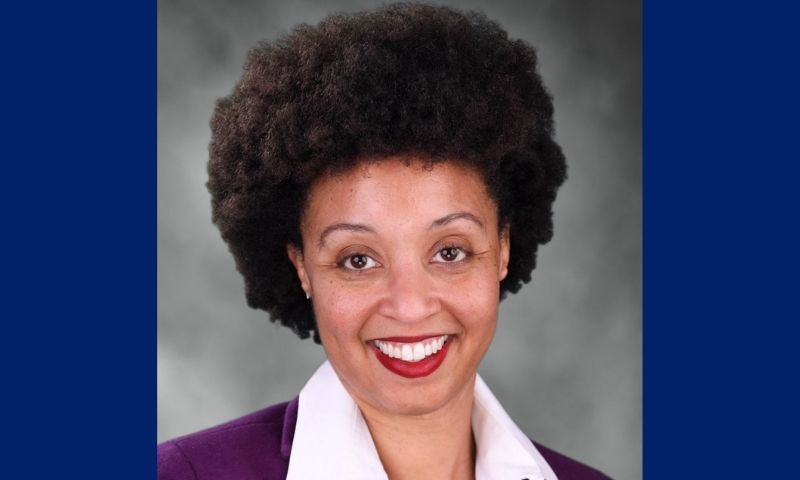New Leadership Role Furthers Competency-Based Nursing Education
Jacqui McMillian-Bohler leverages competency-based education as the inaugural Associate Dean of Academic Innovation and Evaluation at the School of Nursing.

This summer, Jacqui McMillian-Bohler, Assistant Professor at Duke University School of Nursing and Director of the Institute for Educational Excellence, transitions to a new role as the School’s first-ever Associate Dean of Academic Innovation and Evaluation. This three-year appointment will oversee updates to all educational programs, integrating curriculum revisions and a competency-based approach to education.
“We are a leader in nursing education, no question. And for us to maintain that we've got to be ahead of the game and engage in really great work around competency-based education,” said Dr. McMillian-Bohler. “This position allows me to focus on that.”
The American Association of Colleges of Nursing (AACN) defines competency-based education as “a system of instruction, assessment, feedback, self-reflection, and academic reporting that is based on students demonstrating that they have learned the knowledge, attitudes, motivations, self-perceptions, and skills expected of them as they progress through their education.”
In 2021, AACN released The Essentials: Core Competencies for Professional Nursing Education, the latest in a series that began in 1986. The newest edition includes ten domains of expected competency, with the aim of ensuring that nursing graduates of baccalaureate, master’s, and Doctor of Nursing Practice programs receive a well-rounded education that prepares them for clinical practice.
Dr. McMillian-Bohler will be discussing strategies for transitioning to the AACN Essentials at the closing plenary of the AACN’s Transform 2024 conference in December.
“Even the PhD program, which is not accredited by the Commission on Collegiate Nursing Education (CCNE), can still derive benefits from competency-based education,” Dr. McMillian-Bohler added. “Many PhD students will become faculty in schools that will integrate competency-based education, so familiarity with this approach is helpful for nursing education across the board.”
As the Director of the Institute for Educational Excellence for three years and counting, Dr. McMillian-Bohler says that she has gained insight into current faculty needs. It is her hope that the institute will eventually expand into a full department that continues to focus on building faculty development.
“I am fortunate to work with a group of passionate, very well-skilled, and creative faculty who do amazing work not just in the classroom, but in their clinical and research spaces as well,” said Dr. McMillian-Bohler. “And our students at the School of Nursing are amazing—they come to us amazing. So, we want to make sure that the experience they have is transformative and that we’re elevating them in terms of what they can achieve.”
A certified nurse-midwife who teaches perinatal nursing in the School’s pre-licensure and master’s degree programs, Dr. McMillian-Bohler says that she will draw on her clinical and teaching fields to bring a spirit of collaboration to her new role.
“In birth, it’s the birthing person and their family who really do the work, and our job as providers is to empower and provide the personal management skills that the birthing person needs in order to have the positive outcome they want,” said McMillian-Bohler. “I don’t see this job as any different. The curriculum is owned by the faculty, and it’s the role of my office to make sure they have the skills and resources they need to do the work.”
According to Dr. McMillian-Bohler, further attention to faculty needs and competency-based education will serve to bolster an institution that is already widely recognized for its excellence in teaching.
For example, this year, the School of Nursing received the Peg E. Daw Certification Star Award from the National League for Nursing (NLN) in recognition of efforts to increase the number of educators, including non-regular rank faculty. Moreover, between its School of Nursing and Health System, Duke University is the only institution in the United States recognized as a Center for Excellence in all four of the NLN’s designations.
Moreover, the School’s Master’s Entry to the Practice of Nursing program (MEPN) marked yet another significant milestone. As chair of three task forces and a continuing member of the pre-licensure curriculum committee, Dr. McMillian-Bohler has been instrumental in bringing this educational transformation to fruition.
Dr. McMillian-Bohler credits her team and the leadership at the School of Nursing for making advancements in nursing education possible, expressing gratitude for the opportunities that her new role will bring.
“I get to do what I love with people who are doing what they love, and that hardly even feels like work,” said Dr. McMillian-Bohler. “We have a fantastic mission, and we really work hard to try to live it in all the ways that we can.”